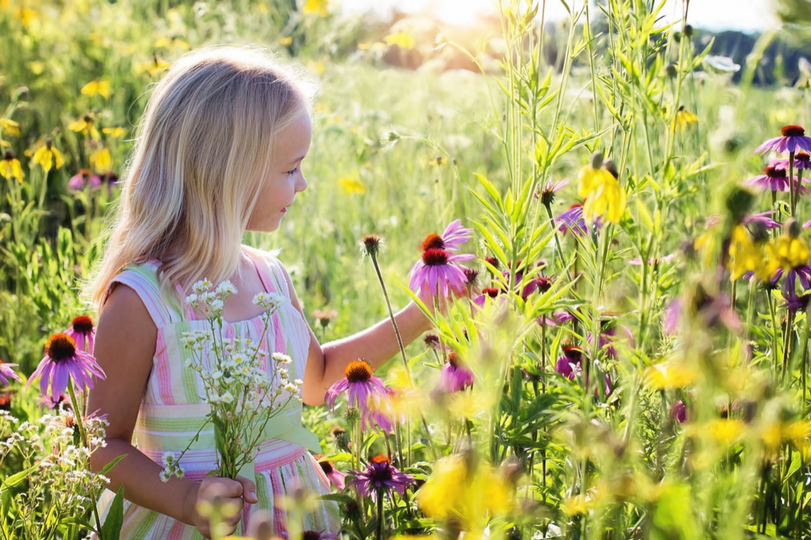
Although winter is still being felt these days, spring has officially begun. This means longer, sunnier days, rising temperatures and a great desire to go out and play outdoors. For many children, however, unfortunately, spring is also synonymous with pollen allergies.
According to estimates by the Bambin Gesù Hospital in Rome in Italy there are more than a million and a half children and young people with nasal and pollen allergies. At least a million under 18s suffer from asthma. Pollen allergies generally occur between March and July, depending on the type of plant causing the allergic reaction. The ones that tend to bother sensitive subjects the most are cypresses, mimosas, olive trees, parietal and grasses.
Symptoms of pollen allergies
The symptoms of spring allergies are very similar to those of a common cold: sneezing and continuous secretion to the nose, red and swollen eyes, tearing, sore throat and dry cough, as well as headaches and itching. Pollen in fact contains proteins that trigger a response from the immune system of allergy sufferers at the level of the mucous membranes with which it comes into contact. In the most serious cases, when pollen reaches the bronchi, it can cause asthma attacks. In addition, pollen allergies can cause difficulty sleeping, resulting in fatigue, concentration problems and a consequent reduction in school performance.
What to do to relieve symptoms
The best thing to do is to consult the paediatrician, to check the severity of the alleged allergy and understand how to intervene. Unfortunately, there is no definitive cure for pollen allergies. Prevention is therefore very important to prevent the allergy from exploding right at the height of the season. However, there are several solutions that can help alleviate the symptoms.
In less serious cases, against sneezing, runny nose and itching eyes, the natural “microcrystalline” cellulose powder-based spray can greatly contribute to your relief. The aim is to defend the mucous membranes, so that they can better filter out allergens and so that only clean air reaches the lungs. Cellulose forms a natural barrier, which acts directly on the cause of diseases. This type of spray is effective if inhaled before entering an environment where allergens are present, such as crowded places, planes, trains, gardens or dusty rooms.
In any case, it is necessary to prevent the breathed pollen from inflaming the mucous membranes, so it is advisable to continue treatment throughout the season.
Useful tips for feeling better
In most cases, when pollen allergies affect children in mild form, in addition to nasal sprays, small measures are sufficient to help them feel better. During the spring allergy period, try, as far as possible, to:
- Avoid excursions in nature, especially on sunny and windy days;
- Clean the filters of the air conditioners at home and in your car;
- Do not mow the grass in the garden or avoid taking children to where it has just been mowed;
- Avoid contact with animal hair, dust and smoke;
- Allow children to rest more if they feel tired.
If, on the other hand, the allergy manifests itself in a more serious way, it is advisable to consult an experienced allergist to understand how to intervene both in the preventive phase and in the treatment of the symptoms.
